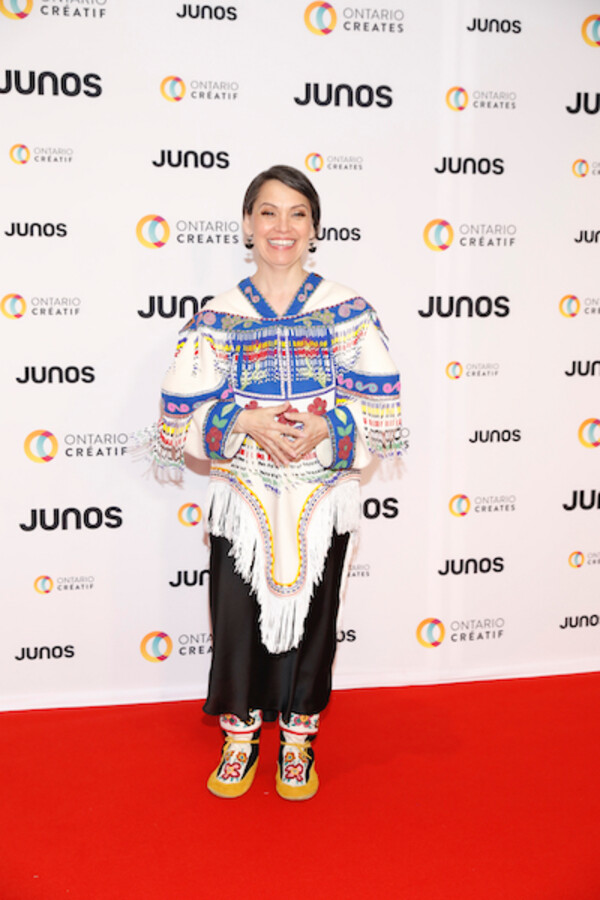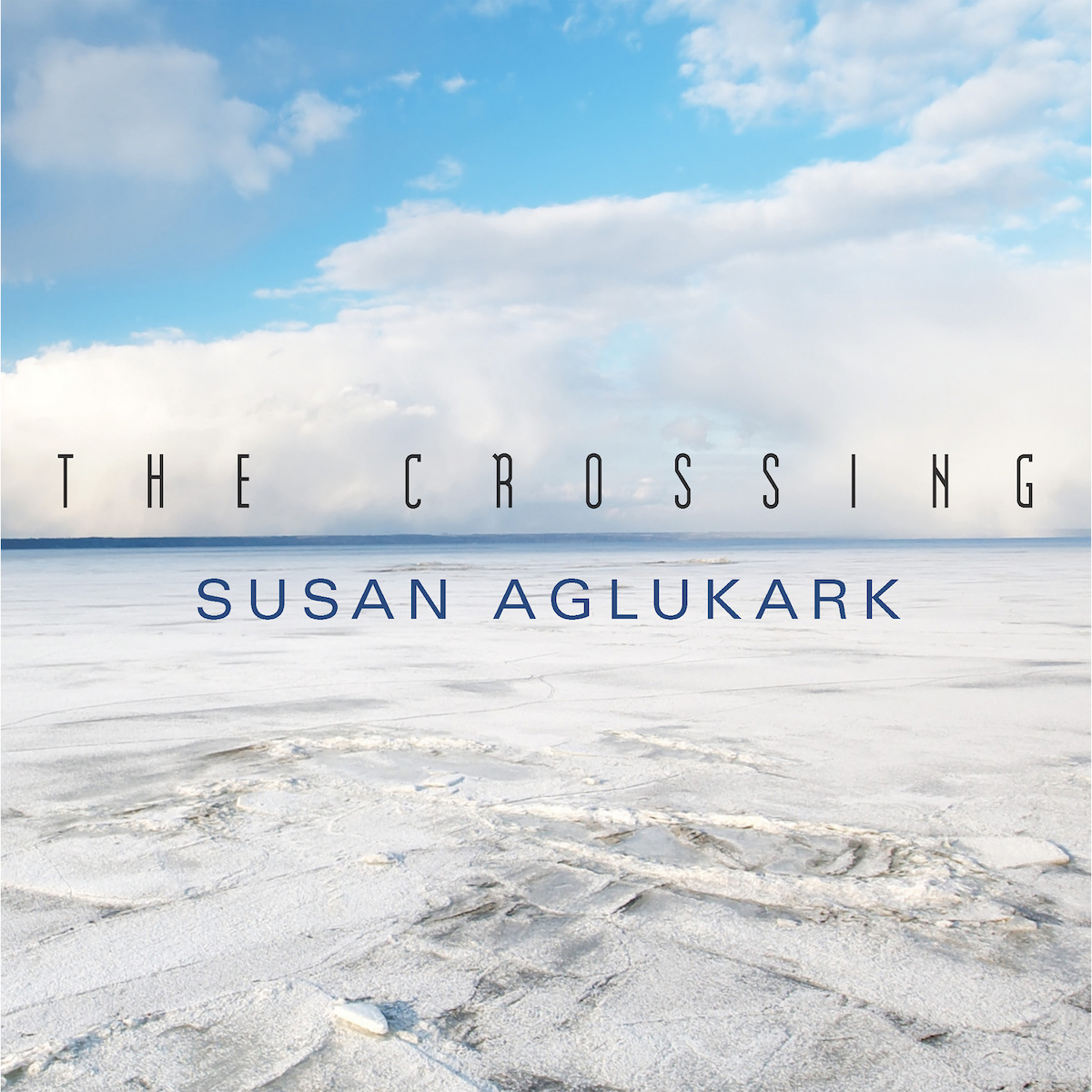
"Mine is such a different story, that I'm forever grateful for that conversation with David Webster who went ahead and hired a jazz musician to put music behind a poem, which became a MuchMusic video that introduced me to a country producer, who guided me to write a country album," Oakville’s Susan Aglukark playfully reminisces.
How did it all begin for you?
"I didn’t sing or write music. I didn’t come to the dream of being a singer-songwriter until it was happening. I didn’t have the same lens through which to view a life of being a singer-songwriter. I didn’t even have the influences growing up for how my life turned out. It was a backwards way to approach it."
"Where I came from, Nunavut, and in the timeline as a child, we didn’t have the kind of options to pursue a singing career. We had limited access to television programs and media. I remember watching the Tommy Hunter Show on CBC. That world seemed so far away, as a child."
"When I left home to move to Ottawa in 1991 to work in the Inuit Division of Indian Affairs, part of my job was to provide history lessons in high school throughout Ottawa. I decided to incorporate a poem I had written in high school called Searching; written in Inuktitut, in my language. Somehow my poem became a song, which became a video and things started to snowball from there," Aglukark describes.
What do you attribute your initial success to?
"What I discovered early in my career is that so many were enamoured with the North; just the North in general, where I come from. I am Inuk; my Inuit name is Uuliniq. I am Indigenous. Something that many people were excited about in my career, from the beginning," Aglukark explains.
What had you imagined becoming when you were younger?
"I had applied to become a pilot. I had no thoughts of being a singer. I was talked into this world. The things that I grew up with that nurtured my career path didn’t align with the producer’s path, for me. I don’t think that they understood that it didn’t occur to me that it might be my career."
"When it was posed as a real possibility I was 22 years old and said, “Sure, sounds like fun!” It was quite a few years and three albums later for me to realize that I was a singer-songwriter," Susan remembers.
Aglukark has since performed for dignitaries like HRH Queen Elizabeth (twice), Nelson Mandela, Canadian Prime Ministers Jean Chrétien and Brian Mulroney. Over the years, she received an impressive list of accolades like the Governor General’s Performing Arts Award for Lifetime Artistic Achievement in 2016.
With now 10 albums to your credit, is there a song that still means the most to you?
With mindful reflection, Susan responds, "O Siem actually. O Siem is from a Coast Salish language spoken by First Nations. It came to me from a conference that I attended; where a First Nations group also attended.
Writing O Siem was one of those first lessons in learning about how incredible the other Indigenous groups are and how sweet and gentle they are. There has always been a special bond to that song; the words kept me calm. Those early years of my career were pretty crazy."
O Siem means a joyful greeting for family and loved ones. Aglukark regards it as, "An anthemic call to turn away from racism and prejudice."
This Child album released in 1995, became her breakthrough album. The first single from that album, O Siem, went to number one on the Canadian adult contemporary and country charts that year, making Aglukark the first Inuk performer to have a Top 40 hit.
What sets you apart as an artist or singer-songwriter?
Aglukark carefully details, "I categorize myself as a singer of Folk/World music. One most unique factor about my music is that I come from a generation of Inuit. The environment that I grew up in was in a very unique and small arctic community. It was a pretty amazing place to be born in."
"I grew up in a time when it was routine to go camping from May until August, out on the land. I hunted and I fished. I ate the animals that I caught. I have a traditional way of sewing, and of cleaning fur. My cultural experience is connected to an older Inuit way of living and being. That carries over into my life away from home. That added to the uniqueness of how I approach songwriting."
What secrets for success would you share with younger artists who you’ve inspired during your career?
"I don’t think that there is anyone thing that would help them succeed because we measure success differently. My success is that I have been able to do this for 30 years. The goal is always if we could do really really well."
"Mine is such a different story that I'm forever grateful for that conversation with David Webster who went ahead and hired a jazz musician to put music behind a poem, which became a MuchMusic video, that introduced me to a country producer who guided me to write a country album. I believe it's also about fearlessly taking advantage of opportunities that you are given but always staying true to yourself. Write from your truth," Aglukark reveals.
In 2012 Aglukark set up the Arctic Rose Project to address homelessness, mental health and hunger for children and youths in Inuit and Indigenous communities. In 2016 the project earned a charitable status now known as the Arctic Rose Foundation; an organization dedicated to giving Inuit and Northern Indigenous youth a safe space to participate and grow through Indigenous-led, arts-based and culturally-grounded after-school programs in their communities.
Incorporated in 2020. Susan also sits on the Board of Directors for the Governor General’s Performing Arts Awards Foundation and the Hnatyshyn Foundation. It is the tireless dedication to these efforts and positive results which made Susan a perfect recipient and recognized for, the 2022 Humanitarian Award at this year’s JUNO Awards.
Let’s talk about your new album. Is it a departure from your earlier work?
"It is and isn’t. Some songs are very much about stories. The goal is to encourage Inuit youth to go and find their own original story. Because it's going to take a bit longer for our youth and children to hear these stories in school, not yet part of the curriculum, I feel like it’s the role of the artist to encourage them to find their stories themselves. Songs are my way of sharing what I've learned so far of my ancestors' connections as far back as I can go."
"Singing folksy and world music seems to be how I feel I perform best, live. There are some statement songs as well. I’m trying to have reconciliation conversations. There are still some things as Indigenous people that we are unlearning for ourselves. In a way this album is a little bit more specific than the last one; a cultural story."
The Crossing is the first release from Aglukark’s new album, now available on all platforms.

Do you have any collaborations on your wishlist of artists that you’d love to work with?
Susan happily replies, "I do, and I am. I can’t share who they are yet. I am hoping to release the singles later this year."
Who are some that you’d like to thank for their contribution to your success?
Without hesitation Susan answers, "Yes. My publicist Eric Alper. My producer Chad Irschick who has been my mentor and producer for 25 years. Without fail, all of my friends in Oakville who have been wonderful, wonderful supporters all throughout. And of course everyone who has supported my music and embraced the message in my lyrics."